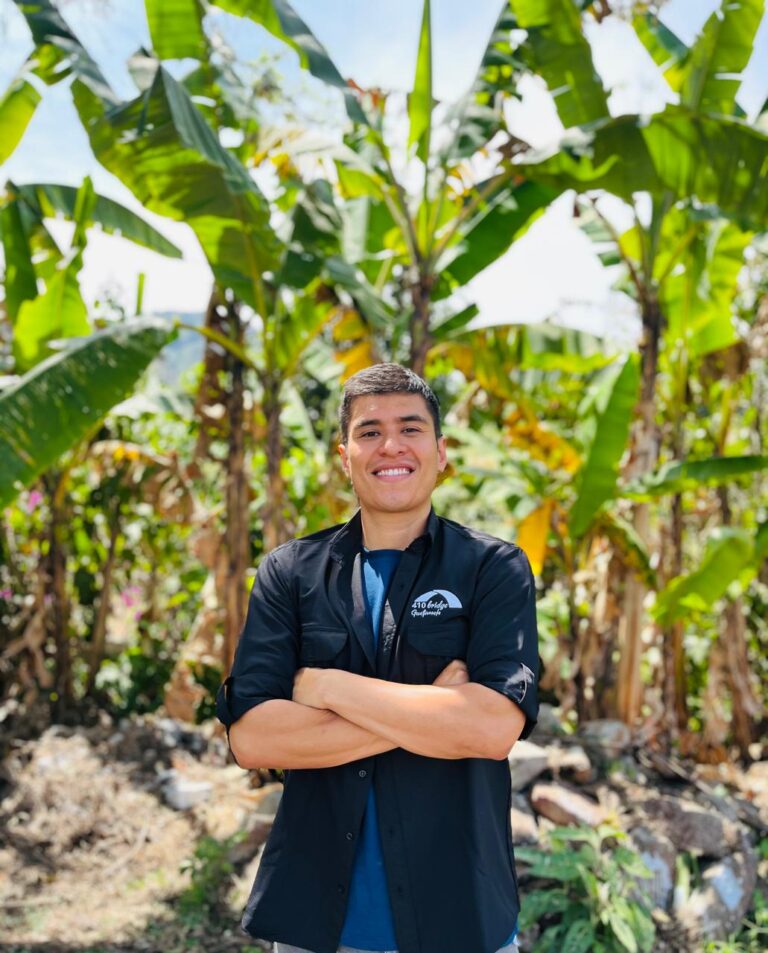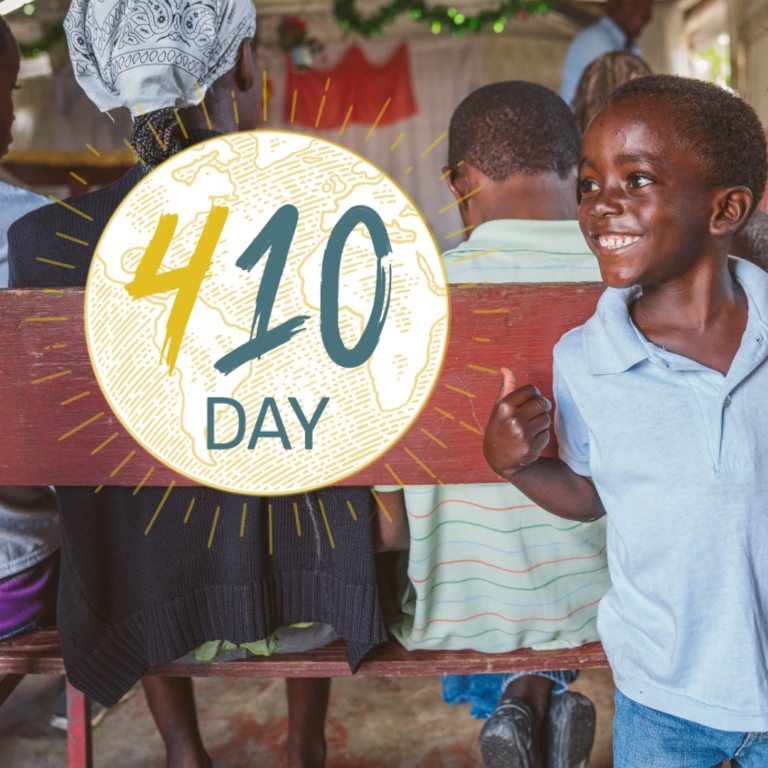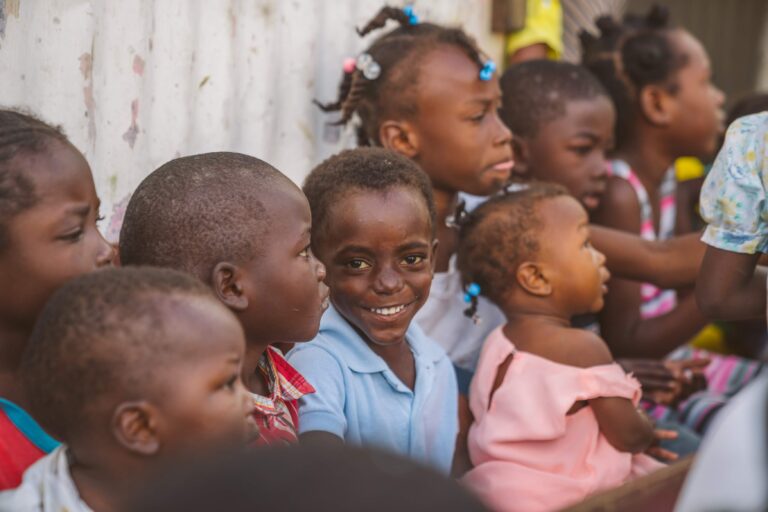Sharing About My Trip
Over the course of three beautiful weeks, I had the privilege of traveling to four different communities in 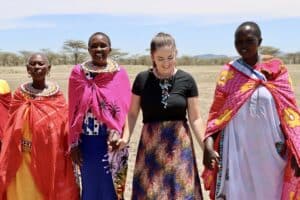 Kenya that the 410 Bridge partners with – Tumutumu, Irigithathi, Mutirithia, and Ndibai. Since January 2022, I have had the honor of working as a program manager for the 410 Bridge, and words cannot even describe how inspiring and rewarding these three weeks were.
Kenya that the 410 Bridge partners with – Tumutumu, Irigithathi, Mutirithia, and Ndibai. Since January 2022, I have had the honor of working as a program manager for the 410 Bridge, and words cannot even describe how inspiring and rewarding these three weeks were.
Programs Department
Working in the programs department at the 410 Bridge, I am constantly working with project proposal forms and budgets, discussing strategies, and talking about development and sustainability with our in-country directors and staff.
I thought that I had a good grasp on the 410 Bridge model before this trip, but this trip opened my eyes to the impact we are making in new and profound ways. I could probably write book on my experiences and reflections, but I will save us some time and tell you two stories.
The Women of Mutirithia
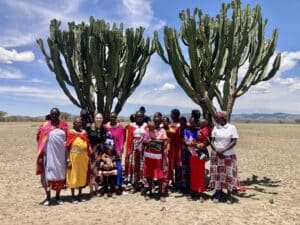 One of the first communities that I visited in Kenya was Mutirithia. For those who have never been, Mutirithia is a dry and desolate land, filled with colorful Masaai culture and centuries of beautiful history.
One of the first communities that I visited in Kenya was Mutirithia. For those who have never been, Mutirithia is a dry and desolate land, filled with colorful Masaai culture and centuries of beautiful history.
The people of Mutirithia are a Masaai people group, meaning they are nomadic and tribal. The men of the community still spend their days herding livestock, sometimes leaving their families and communities for months (even years) at a time to find greener pastures.
This land and culture has left many communities (such as Mutirithia) very broken and desperate for breakthrough. Women in the community are especially marginalized, as they often stay behind to care for families on their own and do not have the same status as men.
Meeting Maria
When I arrived to Mutirithia, I was first brought to Maria’s home. Maria is a beautiful and strong woman who is married to a very traditional, Masaai man.
When the 410 Bridge started partnering in Mutirithia, one of the first programs we launched was Foundations for Farming. This program goes over principals of sustainable farming, while also talking about what it means to “farm God’s way”.
When Maria heard about this training, she jumped on the opportunity and over the course of several weeks, she learned about a God who is kind and generous, and about farming as a way to preserve her family and community with the resources she already has.
After the program was over, Maria told me that she had to have multiple conversations with her husband about starting a farm on their land. Since Masaai culture is nomadic, idolizes livestock, and does not traditionally farm, convincing her husband to use the little resources they have (i.e., land, water, time, etc.) to start a farm was no small feat.
Eventually, her husband agreed that she could start farming, on one condition: she had to make profit and prove that farming would be transformational for their family.
Her Little Farm
Over the course of the next several months, Maria tended to her little farm with diligence and joy. Not 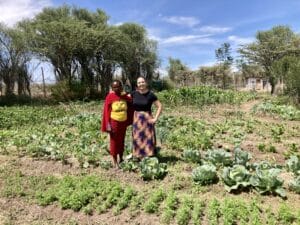 surprisingly, her farm grew and grew! She planted beans, maize, squash, tomatoes, various herbs, potatoes, carrots, sweet potatoes, and the list goes on.
surprisingly, her farm grew and grew! She planted beans, maize, squash, tomatoes, various herbs, potatoes, carrots, sweet potatoes, and the list goes on.
Eventually, the word got out that Maria had a thriving farm. She started selling her goods to neighbors and has now become a hub within her community for growing and selling necessary foods. Typically, people within Mutirithia would travel miles for simple groceries, but now they come to Maria.
Over time her husband saw how profitable her farm was, and not only allowed her to continue farming, but also told her to expand her farm as she saw fit.
An Empowered Businesswoman
Maria told me that her small farm has changed her life in big ways. Not only is she an empowered businesswoman within her community, but this farm has improved her relationship with her husband and has provided a source of food to her community that is nearby.
Maria now spends her time tending to her garden and teaching her newfound skills to other women within the community. What a beautiful image of empowerment and sustainability.
Meeting Mary
The last community I visited while in Kenya was Ndibai. Ndibai is a beautiful community, not far from Lake Nakuru. It may not be quite as dry and desolate as Mutirithia, but the people in Ndibai still struggle with extreme poverty.
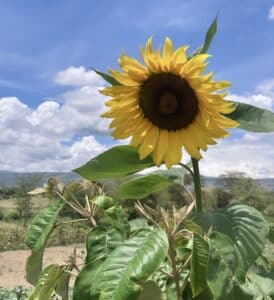 One day, we were invited to Mary’s home. Mary’s home is located in the middle of rolling fields, lined with bright sunflowers. The walk onto her property is peaceful and quiet, and I could sense God’s presence the moment we started walking up to her home.
One day, we were invited to Mary’s home. Mary’s home is located in the middle of rolling fields, lined with bright sunflowers. The walk onto her property is peaceful and quiet, and I could sense God’s presence the moment we started walking up to her home.
Though peaceful and quiet at first, the closer we got, the louder it got.
You see, Mary started a chicken farm a year ago, and now has over 3,000 chickens on her property! When we arrived, Mary came out of her home beaming from ear to ear. She embraced us and welcomed us and sat us down to tell us her story.
The Chicken Business
One year ago, Mary heard about an opportunity to join our business startup training (BST) and savings groups ministry (SGM). When she joined our programs, she was a single, unemployed mother of 5, and completed depressed.
She could barely make ends meet and told us that it was not uncommon for her and her children to skip meals due to lack of finances. She told me that she was very pessimistic that the trainings would help her at all, but joined because she had nothing else to do and no other prospects.
To her surprise, the programs completely transformed her life.
She told us that the BST program opened her eyes to the opportunities and resources she already had at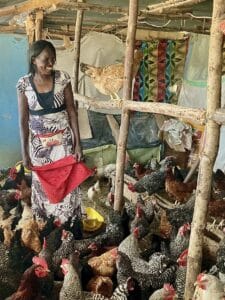 her fingertips, and she recognized a market opportunity within the chicken farming business. The SGM program provided a supportive community where she could learn to save and budget her money and glorify God with her finances.
her fingertips, and she recognized a market opportunity within the chicken farming business. The SGM program provided a supportive community where she could learn to save and budget her money and glorify God with her finances.
When she graduated from our BST program, she immediately took out a small loan through her savings group and purchased a small flock of chickens.
Huge Growth
The work became so much that Mary ended up hiring 4 employees to help her run her chicken farm. With her profits, Mary has also started farming maize, beans and tomatoes and told us that she has plans to continue expanding her business, as the Lord sees fit. Now, not only is she able to provide for herself and her family, but she is a respected businesswoman within the community of Ndibai.
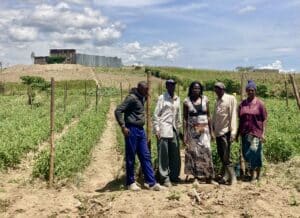 At the end of her story, Mary looked at me as said, “I used to be nothing, but now I have everything. I owe all that I have to the 410 Bridge and to my God!”
At the end of her story, Mary looked at me as said, “I used to be nothing, but now I have everything. I owe all that I have to the 410 Bridge and to my God!”
A Small Glimpse
I hope that these two stories give you just a small glimpse of the change and transformation that is happening in these 410 Bridge communities.
What an honor it is to be part of an organization that acts as a catalyst within communities for birthing hope, establishing peace, empowering leaders, casting vision, encouraging development, changing marriages and families, and radically transforming worldviews to set people on a trajectory towards their own poverty eradication and community development.
Want to Help Women Attend Business Start-Up Training? Sponsor Today! We currently have hundreds of women who are hungry to be a part of the BST program but need sponsors.
Click here to help now.
